The new E10 petrol grade is being introduced across the United Kingdom from September 2021. The move is part of the government’s strategy to reduce harmful emissions from transport
Although the new E10 petrol retains the same 95-octane rating as existing unleaded petrol, it contains a much higher proportion of ethanol. Currently, all petrol supplied at filling stations contains a five per cent mix of ethanol, which is why it is known as E5. However, from September 2021, that proportion will be doubled in standard grade petrol. The fuel will be identified by the code E10.
This change will not affect Toyota owners with a diesel-powered vehicle.
Which Toyota models can use E10 petrol?
If your Toyota has a petrol engine or hybrid powertrain and was officially produced for European markets since January 1998, it will be compatible with E10 petrol.
The only exceptions to this rule are the following vehicles:
- Toyota Avensis with 2.0-litre 1AZ-FSE engine made between July 2000 and October 2008.
- Toyota Avensis with 2.4-litre 2AZ-FSE engine made between June 2003 and October 2008.
If your vehicle was produced before January 1998, it cannot use E10 fuel.
Can you use E10 petrol in imported cars?
If your car is an imported model that was not officially sold in European markets, we recommend staying on E5 by using super unleaded, which has a higher octane rating. Having received queries from owners regarding specific imported models, we are investigating this further.
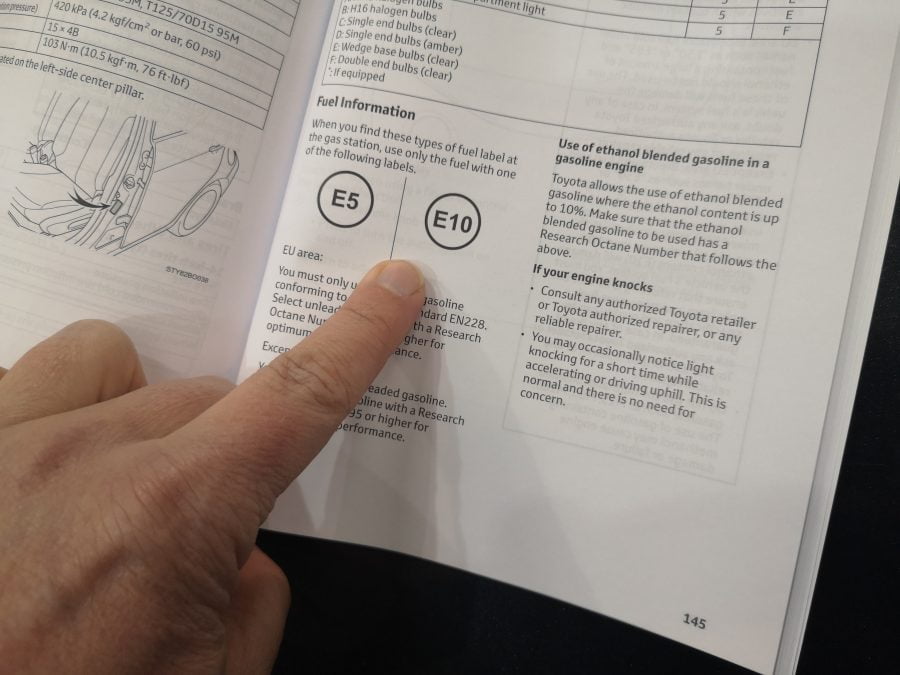
How can I check if my Toyota can use E10 petrol?
This can be confirmed by checking the owner’s manual or looking at the information printed on the inside of the fuel filler flap. If you are still unsure, use E5 petrol, which will continue to be dispensed from the super unleaded pump at many filling stations.
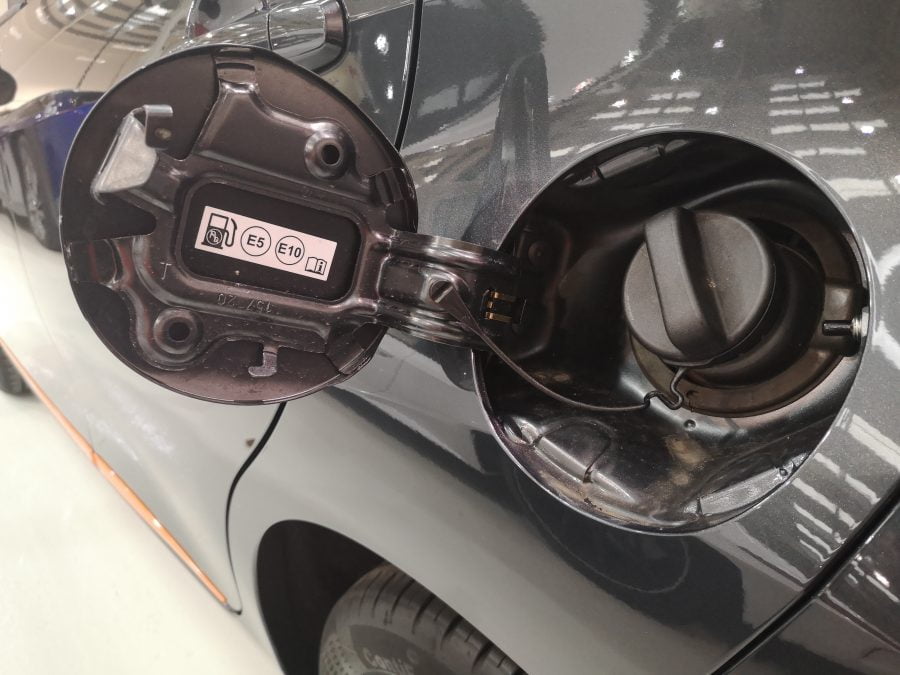
Why is the ethanol content being increased?
Ethanol is a renewable, non-fossil biofuel produced from sustainable sources. It is made using by-products from the farming industry, such as those from wheat, corn and sugar crops.
By increasing the proportion of biofuel in petrol, the content of fossil fuel and therefore our reliance on it decreases. This will reduce the overall levels of CO2 (carbon dioxide) emissions from vehicles and help the government achieve its climate change targets. It has been calculated that this change from E5 to E10 petrol will cut harmful transport emissions by 750,000 tonnes a year. That’s the equivalent of taking 350,000 cars off the road.
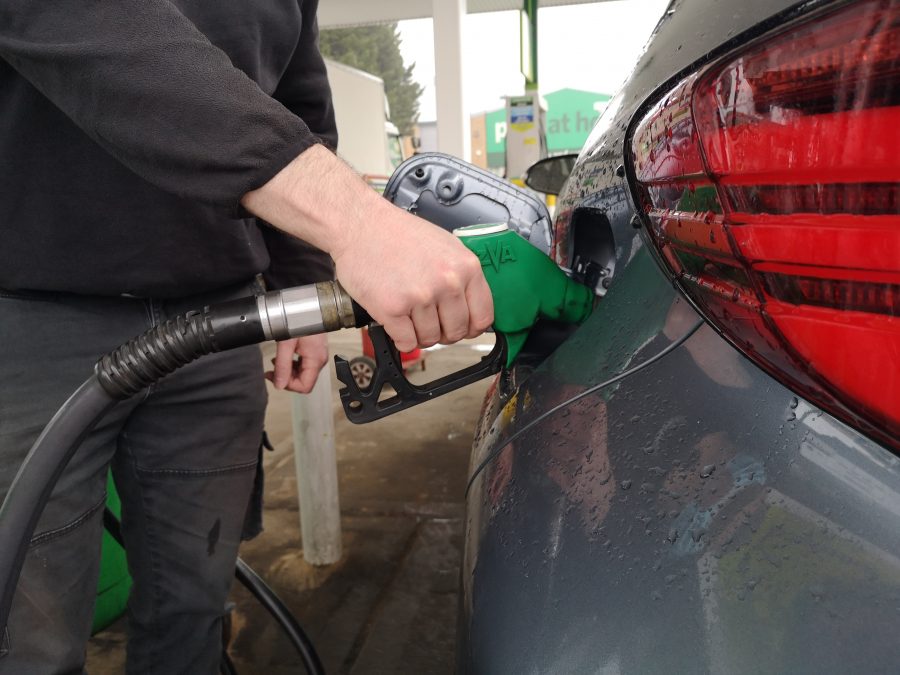
Why isn’t the ethanol content much higher?
The composition of ethanol is different to that of a crude oil based fossil fuel such as petrol. Higher blends of ethanol can cause corrosion of some rubbers and alloys used in the engine and fuel systems of some older vehicles.
A small number of these vehicles will need to continue using E5 petrol, and this will remain widely available at filling stations in super unleaded grade.
Is this change to E10 petrol only happening in the UK?
No. In fact, E10 petrol is already common throughout the world. It has also been the reference fuel used for all new car emissions and performance testing since 2016.
Useful link The government has a simple ‘E10 checker’ tool on its website here.
Read more Toyota hybrid – how does it work?
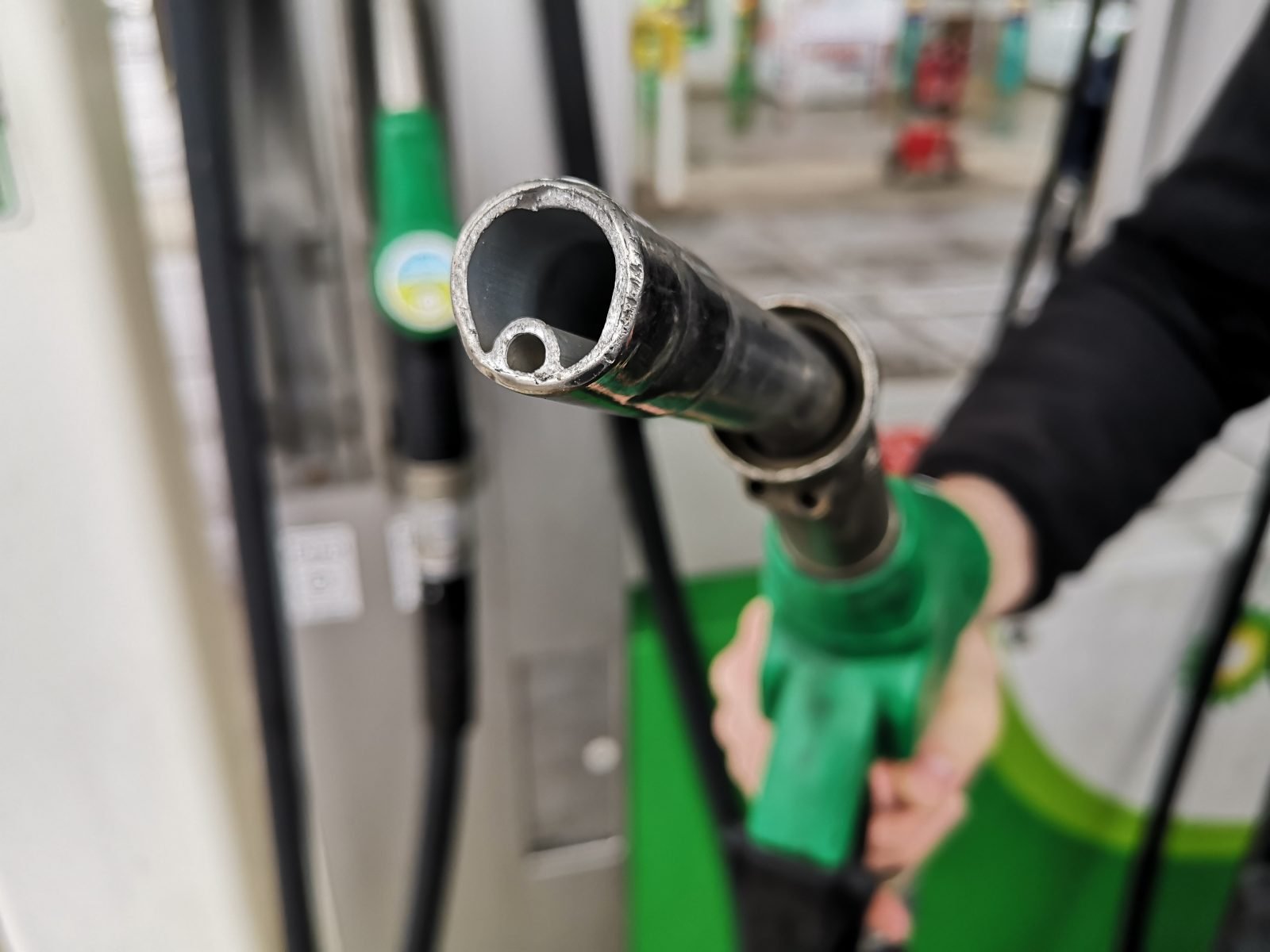
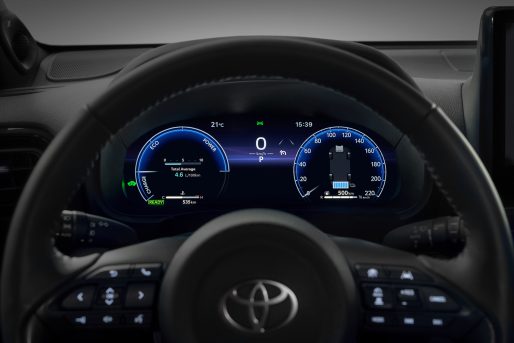


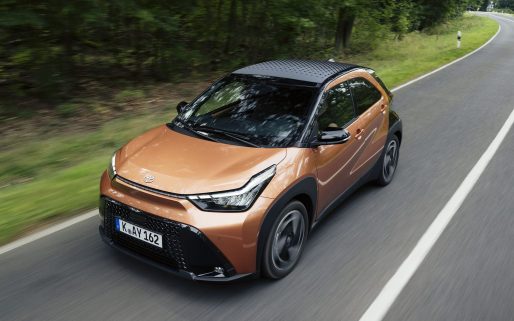
Can my Toyota agro 1.0 reg CF06DDE use the E10 petrol it seems to have no problems at the moment at all
Hi Matthew,
Your Aygo can use E10 petrol.
Thanks.
Toyota Avensis 2.0l estate W564 SHB registered July 2000 – Can it take E10? I accidentally put about quarter of a tank full of the stuff in before I remembered this new E10 petrol thing. I don’t drive much.
Hi Stu,
Your Avensis should be okay with E10 petrol it was produced before July 2000.
Thanks.
I have a 2006 Toyota RAV4 XT5 automatic Petrol car. CanI use E10 petrol in it
Hi David,
Your RAV4 should be okay with E10 petrol.
Please provide the vehicle registration if you would like us to confirm this.
Thanks.
Hi Toyota,
I presume my Toyota Yaris from 2007 might be ok to run on E10 bit it would be good to check. The reg no is YF07 DSZ
Many thanks,
E
Hi Em,
Your Yaris can use E10 petrol.
Thanks.
Hello,
Can I use E10 fuel in my 2002 Avensis Verso reg. DK02LLP? The manual mentions only engines 1AZ-FE (petrol) and 1CD-FTV (diesel). It doesn’t mention 1AZ-FSE but I can’t be sure that I don’t have that engine. Thank you.
Hi,
Please provide your vehicle registration so we can look into this for you.
Thanks.
Hi, my vehicle reg was in my message – DK02LLP. Sorry if that wasn’t clear. Thanks, Allen
Hi Allen,
Your Avensis Verso can use E10 petrol.
Thanks.
I have a Toyota Yaris, 1 Litre, SD59FYL. It was registered on 8/10/2009. Can I use E10
Many thanks
Michael
Hi Michael,
Your Yaris can use E10 petrol.
Thanks.
Hi
We have an Avensis 2004, 1.8L reg. RK04SSV (actual in UK) (former 04KE4663 in Republic of Ireland). According to UK government E10 check site only few 2.0L engines are not compatible but for peace of mind please confirm compatibility with E10 for our Avensis car (above details). Looking forward.
Kindest Regards,
Hello Stefan, thanks for your comment.
That is correct, it is just the 2.0 and 2.4L Auris engines that are incompatible. Your 1.8L will be fine for E10 use.
Thanks.
Hi. Can my Toyota aygo 2009 use E10 and E5. Thanks
Hi Lynne, thanks for your comment.
Your Aygo will be fine to use both E10 and E5 fuel.
Thanks.
Can a 65 reg Toyota hybrid use E10 petrol please? Not on fuel cap (only says not to use diesel) and book says 95 or higher with no mention of E5 or E10. Thanks
Hi Susan,
Please provide your vehicle registration so we can look into this for you.
Thanks.
Can you please tell me whether I can use E10 in my Toyota Avensis 1.8 GS Estate R registration first registered 16/01/1998?
Hi Jennifer,
Please provide the vehicle registration so we can look into this for you.
Thanks.
My reg.is R693EFL – thanks for your help
Hi Jennifer,
As your vehicle was produced before January 1998, it is not compatible with E10 fuel.
Please continue to use E5.
Thanks.
I am grateful for your reply. I’m rather confused now though, as checking in the meantime looking in my manual, it says – fuel to be used should be 95 octane or higher. Isn’t E10 95 octane?
Hi Jennifer,
Although the new E10 petrol retains the same 95-octane rating as existing unleaded petrol, it contains a much higher proportion of ethanol.
Thanks.
Hi I have toyota yaris hybrid 62 plate. Is E10 okay for my hybrid car?
Hi John,
Your Yaris can use E10 petrol.
Thanks.